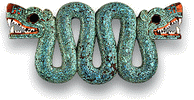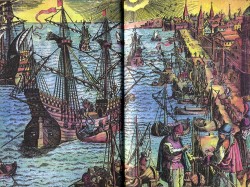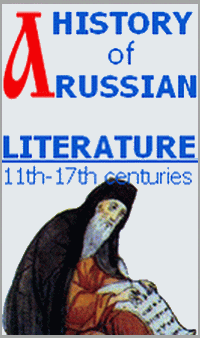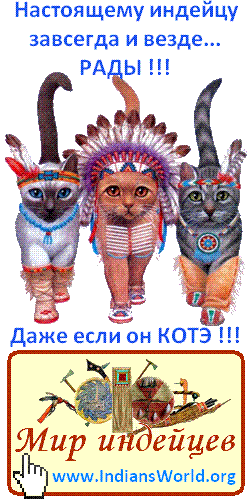CHRISTOPHER COLUMBUS ||| Ch.IV. IN KING JOHN’S MARBLE MANSION
Category: Christopher ColumbusIV
IN KING JOHN’S MARBLE MANSION
“Christopher Columbus, His Majesty will see you now.” Christopher walked through the long marble hall. A moment later he was in the king’s chamber, bowing low.
King John nodded and invited Columbus to a chair. He liked this tall Genoese and he smiled looking at him.
“You may explain what you wish,” he said.
Two men in long robes sat just behind the king. They watched Columbus. Christopher knew about these men. They were the king’s advisers and they were, perhaps, the most learned men in Portugal. One was the king’s own physician, Master Rodrigo. The other was Master Jose Vizinho, also a physician and a mathematician. These two men would be his greatest opponents.
Columbus began to speak. As he became excited, he rose and paced the room. He forgot the king and the two advisers. He thought only of the dream that had been with him for as long as he could remember.
He told about strange driftwood and Asiatic bodies washed up along the shores of the Azores. He told about the ancient stories of islands to the west in the Ocean Sea. He hinted that he knew Toscanelli’s opinion. He spoke about the adventures of Marco Polo and he described the enormous wealth of the Indies. He assured them that if a European landed on the eastern shore of the Indies, all the khans and emperors of the East would be easily conquered. He repeated the name of Cipango — the magic golden isle — many times telling the king about the wealth it had. He described the round ball of earth and showed how, by sailing west, he could reach the Indies in a couple of weeks. And there was no one, he assured them, who could do the job as well as he, Christopher Columbus, for he had studied all the charts of the Ocean Sea and had travelled to every corner of the known world.
There was a long silence when he finished speaking. It was broken at last by the king. “You understand, of course,” he said, “that we will have to think about it.”
“Of course,” said Columbus. He bowed low and went home to wait.
When he had gone, King John turned to his two advisers. “Well?” he asked with a smile.
Vizinho was the first to answer. “Let’s consider the scientific facts,” he said. “Columbus and Toscanelli believe that the ball of earth is small. They also believe that the Indies are very large, stretching far to the east. If they are right, then the eastern tip of the Indies is indeed very close to the western tip of Europe. If they are right, then the strip of the Ocean Sea between is indeed narrow and it would take only a couple of weeks to reach the Indies.”
Master Rodrigo stood up and came up to Vizinho. “However,” he said, “we believe that Columbus and Toscanelli are wrong. They are amateur astronomers. Our calculations show that the globe of earth is much larger than they think. We also believe that the land of Asia is much smaller than they say.”
“Europe is a small area of land on one side of the earth and Asia is a small area of land on the other. There is a vast stretch of ocean between them. Toscanelli thinks the distance from Europe to the Indies is five thousand miles. Columbus lessens this figure to thirty-five hundred miles. But we say they are both absolutely wrong. There are not less than ten thousand miles between the continents!”
“Such a journey is entirely impossible nowadays,” Vizinho added. “Our ships could never carry supplies for so long a voyage. They could not remain at sea without repairs for such a long time.”
“We must not agree, Your Highness,” Rodrigo continued. “It’s a foolish enterprise. The shortest and best way to the Indies is still round Africa. It is the best way because land can always be seen, ships can take on food and be repaired, and crews can rest on shore. Forget this Columbus, Your Highness. Bartholomew Dias is the man who can carry out this task!”
King John thought for a time.
“You may be sure that I will consider your good advice,” he said at last.
The two learned men bowed and went out.
“But what if they are wrong?” the king said to himself after a time. “What if this Columbus is right? The wealth of the Indies — all mine…”
Who was right — Columbus or the Portuguese scholars? Today we know that the scholars were right. The world is bigger than Columbus thought. It is almost twelve thousand miles from Portugal to China in western direction. The little ships of that day were unable to make such a journey without stopping for food and repairs. But wnat neither Columbus nor the learned men knew was that halfway between Europe and Asia, right in the middle of the Ocean Sea, was an unknown world — America.
The months dragged slowly by without word from King John. Christopher’s impatience grew.
“I am offering this fool the whole world,” he said angrily, “and he is too fearful and lazy to accept it!”
“Easy, Christopher,” Bartholomew said. “It will cost him very much.”
“All I ask for are a few ships and men, which the merchants of Lisbon would be glad to lend me,” Christopher said. “He does not have to make the voyage himself. It is I who will do the sailing, I who will risk!”
He paced the banks of the Tagus, talking to himself. The idea of the expedition to the Indies possessed him completely now and there was no room in his life for anything else. He forgot about his business; his debts grew and Bartholomew had to lend him money.
From time to time he heard about Felipa and little Diego. His wife was getting weaker and weaker. But Christopher did not dare leave Lisbon to go to his family, for a message from the king might come any moment.
At last the long expected message from the king came. His Majesty would see Columbus the next day. Christopher was excited with joy.
“Careful, Christopher,” his brother warned. “Not too much pride, brother. Don’t ask for too much. King John doesn’t like it.”
Christopher laughed at this. “It’s impossible for me to ask for too much,” he said. “Don’t you understand how important this is? I am offering a world to this king and I expect honours in proportion!”
He held his head high as he walked through the palace gate.
King John greeted him with a smile. “I am beginning to look favourably on your enterprise,” he said. “Please tell me what you require.”
Columbus was ready for such a question.
He asked for three caravels manned and provisioned for one year and loaded with trading goods such as bells, brass basins, glass beads, red caps and coloured cloth.
Further, Christopher wanted the king to make him a ca- ballero with the title of Don. He wanted the title “Admiral of the Ocean Sea”, with all the rights and honours due to admirals.
He wanted to be viceroy and governor of all islands and mainlands that he might discover.
And, finally, Columbus demanded one-tenth of any profits and precious metals that came from these lands.
As King John listened, his eyes grew wide in astonishment. He became red in the face and he trembled with rage. He sat looking at Columbus for a long time after the mariner had finished speaking.
At last he cried in an angry voice, “Get out of here!”
“But, Your Highness, I…” Christopher began.
The king stood up. “Get out of here!” he said angrily.
Columbus bowed and went out quickly. The king shook his fist after him. “Upstart!” he cried.
Columbus was tired and discouraged. His business was ruined and his debts were great. He had not seen both his son and his sick wife for a long time. The journey home to Madeira was sad. He did not even have the money to buy a gift for little Diego.
Pedro, his brother-in-law, met him at the dock. His eyes were wet. He put his hands on Christopher’s shoulders and looked sorrowfully into his eyes.
“Felipa — she’s dead!” Pedro told him.



